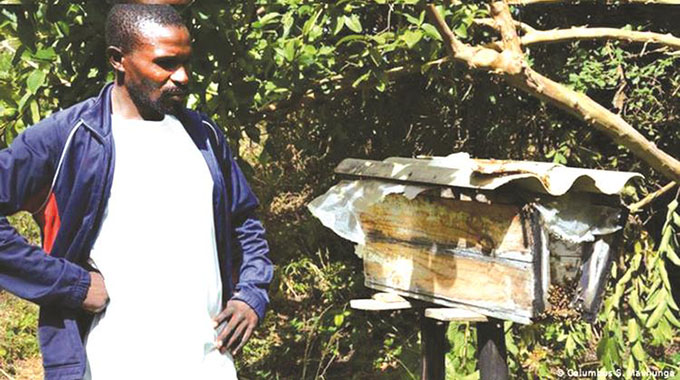
Tanaka Mahanya Features Writer
Many communities within rural areas across the country have been affected by food insecurity, poverty and low household income due to limited economic activities.
In rural households, crop production and livestock rearing are regarded as the most valuable sources of generating income and food production. Therefore, most people in the communities engage in these activities.
Investing in beekeeping will go a long way in creating vast potential to spur rural development as a lucrative economic activity.
To ensure economic growth, beekeeping can be practised together with existing traditional farming in the case that there is competition in the agriculture sector or shortage of arable land.
Due to low access to income in rural areas unlike in urban areas, apiculture, despite being perceived as a leisure pursuit, can be an extra economic activity to supplement income obtained from farming.
To improve and maintain biodiversity, beekeeping can be practised together with farming to improve income generation.
The beekeeping business offers an income for beekeepers through sales of goods and services which include honey, wax and pollination services.
Of late, Government, in partnership with the Common Market for Eastern and Southern Africa (Comesa) has engaged a consultant to develop the Apiculture Standard Training Manual in Zimbabwe in a bid to boost the beekeeping sector and groom people who are well qualified for the activity.
Officiating at the Apiculture Standard Manual validation workshop in Harare recently, Livestock and Veterinary Services Department principal director Dr Unesu Ushewokunze-Obatolu said apiculture was a potential pillar for economic growth through pollination services.
Apiculture is a rather simple activity which is cheap after the outlay of supplies, and greatly satisfying to beekeepers at the same time creating an opportunity to enjoy one’s own homemade honey generated with personal resources.
According to Chala et al (2003), through experiences and opportunities, apiculture creates a future generation which is more food resilient and economically stable regardless of unpredictable climatic changes.
The country faced two natural disasters, the severe drought at the beginning of the year followed by the devastating Cyclone Idai in March, which affected crop yields.
Beekeeping can work as an appendage to acquire income in households.
The Ulster Beekeepers’ Association in Northern Ireland notes that no fewer than 39 commercial crops in that part of the world are reliant on bee pollination.
In addition, bees pollinate plants which are used to feed cattle and other farm animals. A lack of pollination would make it more difficult to raise both beef and dairy cattle.
Beekeeping is a welcome economic activity to improve the lives of rural residents and improve the existing traditional farming methods.
